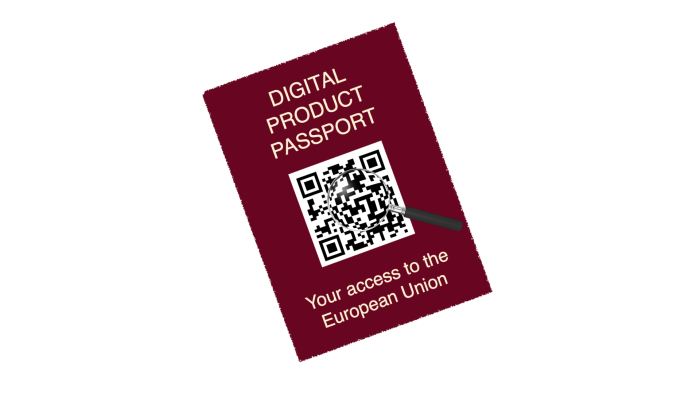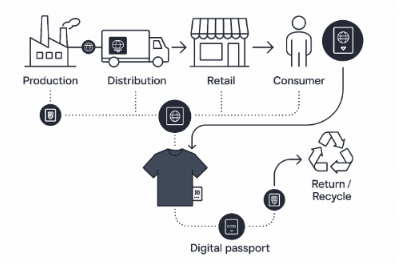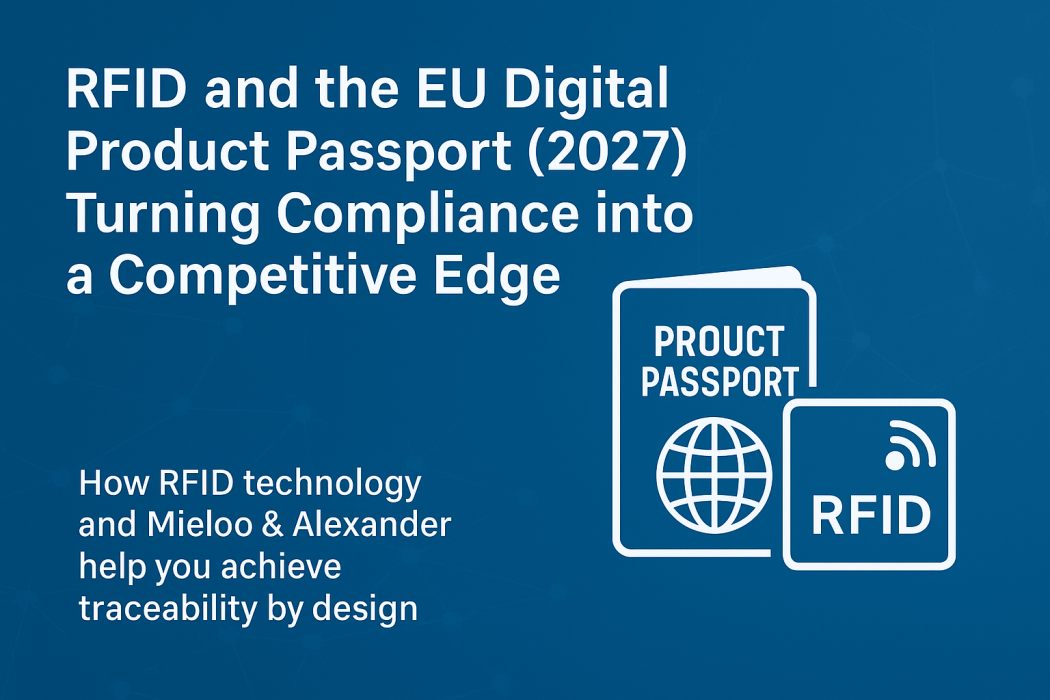In 2027, the European Union will introduce the Digital Product Passport (DPP) for categories such as textiles, batteries and electronics. The aim is to give every product a unique, accessible record of its materials, origin, repair options and environmental footprint.
Many organisations view this as a compliance hurdle. At Mieloo & Alexander, we see it as an opportunity to strengthen supply chain visibility, improve operational efficiency and accelerate the transition to a more circular economy. One of the most effective technologies for achieving this at scale is RFID.
A closer look at the Digital Product Passport

The Digital Product Passport is more than a QR code or a line in a database. It’s a living identity for every product, travelling with it from production to resale to recycling. For companies with complex, multi-tier supply chains, capturing and sharing this information accurately and without slowing operations is no small task.
That’s where RFID changes the game. Unlike barcodes or QR codes, RFID identifies items automatically, without line-of-sight, and can process thousands of products in seconds. It embeds data capture into the flow of your operations, making compliance a by-product of the way you already work.
Why RFID changes the game
When every product becomes a live data point, you can do far more than meet regulatory requirements. You can spot inefficiencies in real time. You can manage inventory with precision, rather than estimates. You can respond instantly to recalls and give customers accurate product histories at the moment they need them.
One of our clients in fashion retail cut returns processing time by more than a third after implementing RFID and is already fully prepared for the 2027 DPP requirements. Another, in automotive manufacturing, now tracks components across multiple sites with the accuracy needed to reduce risk and improve quality control.
The Mieloo & Alexander approach
 For more than two decades, Mieloo & Alexander has been designing and implementing RFID and IoT solutions for manufacturers, retailers and logistics providers. Our focus is always the same: make traceability part of your operating model, not an afterthought. We integrate RFID directly with ERP, WMS and PLM systems, ensuring that the data your DPP requires is tied to the same flows that keep your business running. The result is a system that serves both compliance and competitiveness.
For more than two decades, Mieloo & Alexander has been designing and implementing RFID and IoT solutions for manufacturers, retailers and logistics providers. Our focus is always the same: make traceability part of your operating model, not an afterthought. We integrate RFID directly with ERP, WMS and PLM systems, ensuring that the data your DPP requires is tied to the same flows that keep your business running. The result is a system that serves both compliance and competitiveness.
Preparing now for 2027 and beyond
The organisations that will benefit most from the Digital Product Passport are not waiting for 2027. They are building their data infrastructure, refining their tagging strategies and preparing their teams today. By the time the regulation takes effect, compliance will be effortless and their supply chains will be more agile, resilient and profitable.
RFID is the foundation for this transformation. With Mieloo & Alexander as your partner, you gain not just a technology provider, but a guide to making traceability work for your business.

